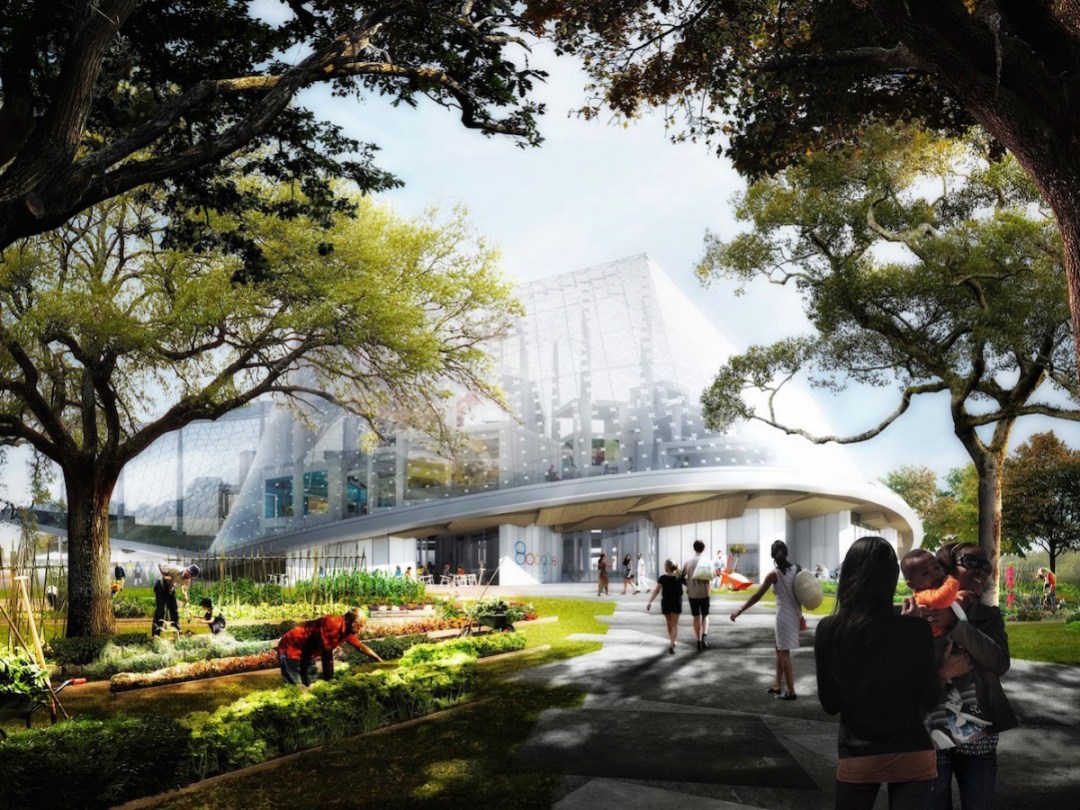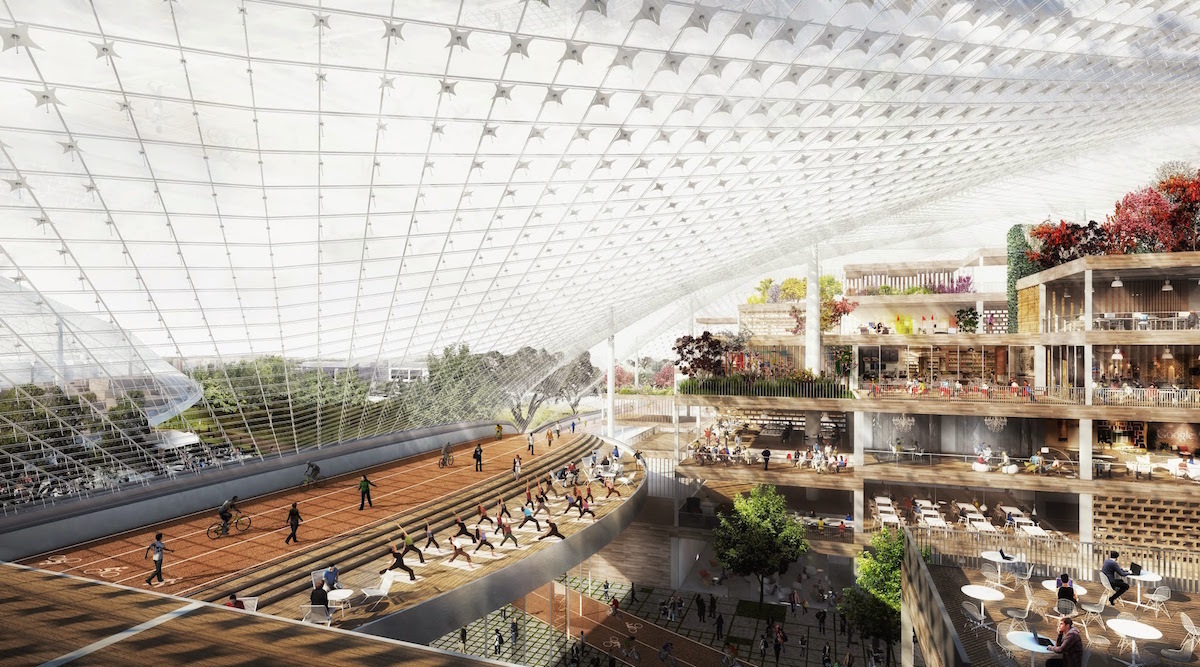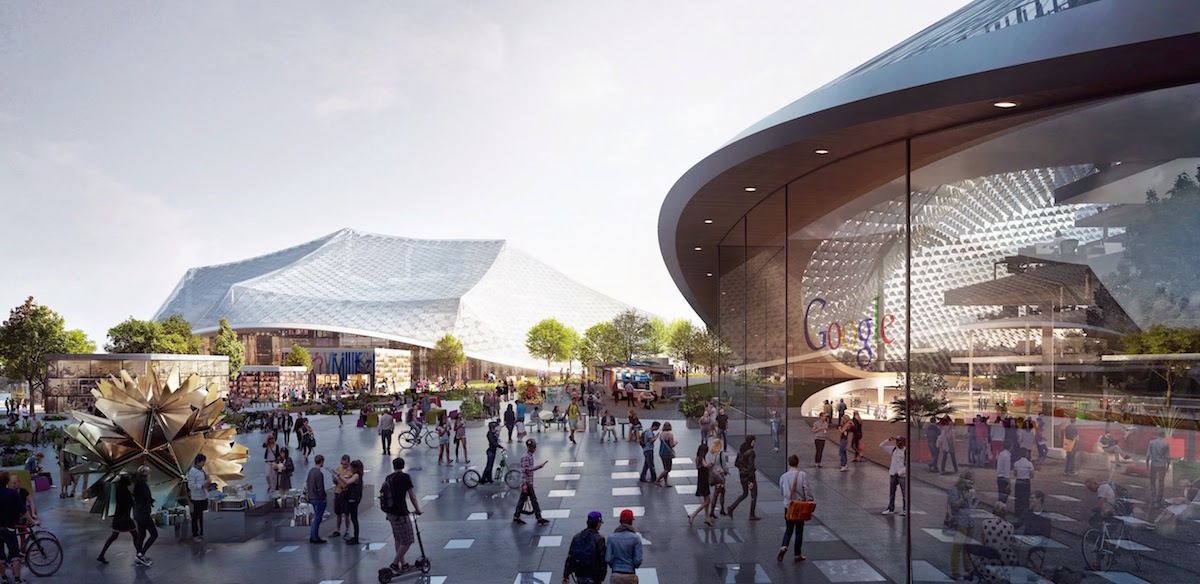See Google’s stunning proposed HQ, with glass canopies draped atop changeable buildings
A remarkable vision of what’s possible with a ton of money, tech, and knowhow

Google’s incredible ambitions range from smartphones to health to self-driving cars and much more, and now the company has a new goal in mind: change what we think about buildings, especially their permanence.
At least that’s our takeaway from Google’s jaw-dropping new plan to overhaul its Mountain View, California headquarters. The space, currently dominated by parking lots and traditional-looking office buildings, will be replaced with new types of structures that can be easily shifted and reshaped to meet changing needs.

Essentially, the primary buildings will have what appear to be free-standing stacks of floors and rooms all covered by a fabric-like glass canopy, which is held up by large tent poles. The canopies will have built-in shading tech to keep the buildings from feeling like a greenhouse, even if they look like one.
And the first form they take won’t necessarily be permanent. Thanks to robots and cranes built into the design, it’ll be possible to shift the layouts in a matter of hours – and without an abundance of new materials needed. Spaces can be expanded and contracted as needed to accommodate new or ending projects, events, etc.
The plan sees parking moved underground and more plant life and natural spaces brought back to the area, both around the structures and even within. And at least one of the canopied structures will allow public access, letting nearby residents and visitors run or bike through the paths or come in to eat or shop.
It sounds quite different from Apple’s so-called “spaceship” Campus 2 being built in Cupertino, California. While that building is planned to be the “greenest on the planet,” says CEO Tim Cook, we have a hunch that Apple isn’t planning on having random residents pop in for a sandwich.

For now, Google’s proposal is just that – some of the tech is apparently still theoretical, and the company will need some regulatory help to get the space it needs to execute such plans. Apparently LinkedIn is also aiming to get some of that land for its own development plans, so Google may need to make a strong case that its plan is the best for Mountain View’s future.
If all goes according to plan, however, Google aims to have the first of the four main canopied areas completed by Q1 2020, and we’ll be excitedly anticipating the developments ahead. Don’t miss the video above if you have any interest in architecture, city planning, or… well, Google’s philosophy towards things.
[Sources: Google+, Silicon Valley Business Journal via The Verge]
Read More › How to become invisible (to Google)



